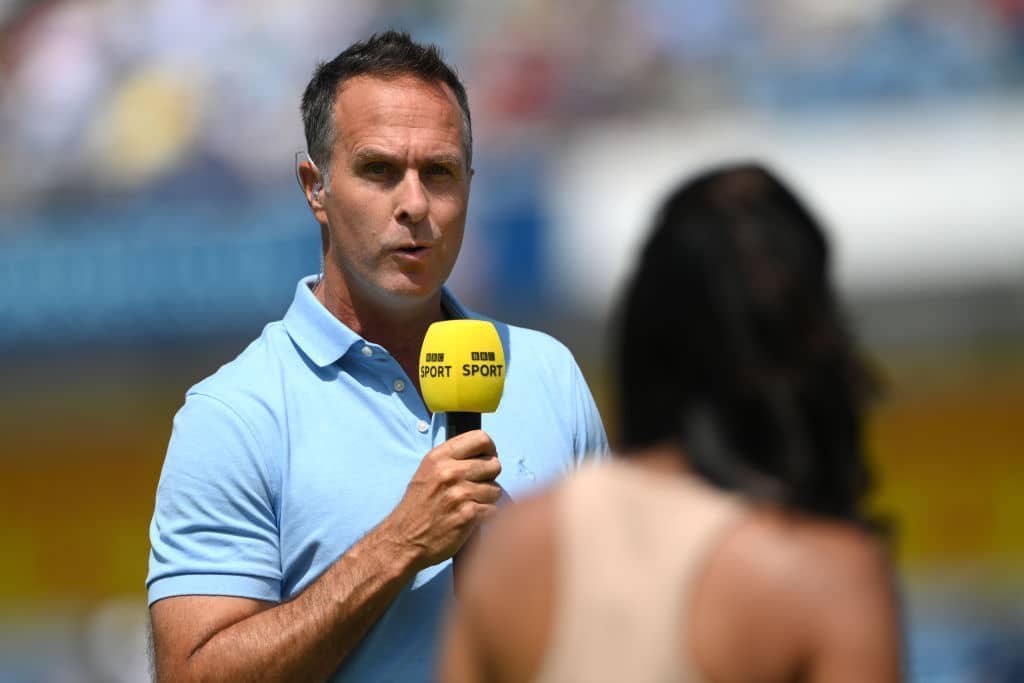Is Michael Vaughan a racist? I hope not. Certainly, referring to Asian cricketers as ‘you lot’, as he is accused of doing – and which he strongly denies saying – would suggest he is. Or, at the very least, that in the past he has been guilty of being egregiously politically incorrect.
I’ve met Vaughan several times and once sat next to him on a flight from Abu Dhabi to London. On each occasion I was struck by his openness, and by his enthusiastic and enquiring nature. He certainly didn’t seem a racist to me – the opposite, in fact – but perhaps he was just very good at hiding it. Who knows?
In his several hours of, at times, tearful testimony in Parliament yesterday before the department for culture, media and sport committee, former Yorkshire cricket captain Azeem Rafiq spoke at length about his experience of racism at the club. He said racism was so endemic at Yorkshire that players had lost any sense of how offensive they were being.
For this reason, he said, he would not be surprised if Vaughan couldn’t now recall making the ‘you lot’ comment. ‘He probably doesn’t remember it because it doesn’t mean anything to him,’ he told the committee.
Likewise, and not terribly convincingly, it has to be said, he justified current England captain Joe Root’s claim never to have heard racist language being used by his teammates at Yorkshire. He said that although the player would certainly have been involved in social events ‘where I was being called a Paki. He might not remember it. But it just shows how normal it was in that environment.’
It will not be just Vaughan and Root who will now be holding uncomfortable discussions with agents and media employers
Rafiq was giving his testimony, he repeatedly said, not to single players out for the sins of the past, but rather to draw attention to the problem of institutional racism in English cricket – and thereby to ensure players of colour in future did not have to encounter it.
Nevertheless, it will not be just Vaughan and Root who will now be holding uncomfortable discussions with agents and media employers. Much-loved former England manager turned commentator David ‘Bumble’ Lloyd – he of the famous ‘start the tuk-tuk!’ catchphrase – was also mentioned unflatteringly in Rafiq’s testimony, as were Matthew Hoggard, Tim Bresnan, Martyn Moxon and Gary Ballance.
Several more high-profile names will also presumably be mentioned when the independent report Yorkshire has commissioned to investigate Rafiq’s allegations is finally published in the coming days.
For such a beautiful game, cricket does seem consistently to go to great lengths to make itself as ugly as possible.
I fell out of love with it, or with the England set up at least, as a result of KP-gate, when the career of Kevin Pietersen – very probably the greatest batsman ever to play for England – was cut short in 2014, apparently for no reason other than that he had grown unpopular with his teammates. No adequate explanation was ever given. I grew infuriated with what I saw as a jobs-for-the-boys culture within the dressing room, and also with what I perceived to be a very obvious cover up by the former players whose job it was to report on the game, as commentators and as journalists.
Vaughan was one of the only pundits who publicly criticised Pietersen’s treatment; that criticism was very likely a factor in him later losing out to Andrew Strauss for the job of ECB chairman. I also remember then ECB chairman Giles Clarke describing the clean cut, and unmistakeably white, Alistair Cook – Root’s predecessor as leader of the national team – as being ‘a very good role model. He and his family are very much the sort of people we want the England captain and his family to be.’
I mention this, not to equate the treatment of Rafiq with South Africa-born Pietersen’s – although certainly one could draw parallels based on perceptions within the English cricket establishment of what constitutes the ‘right sort of people’ – but rather to point out it is cricket’s habit of regulating itself and adjudicating on what is acceptable and what isn’t.
When the public outcry over KP-gate was at its greatest, for example, and furious demands were being made for the case against the player to be made public, the BBC’s chief cricket commentator Jonathan Agnew opined:
‘The details of how this happened does not concern me. I am not privy to this information, and nor should I be. The roar of indignation from some demanding that all the facts be publicly laid bare is absurd and unrealistic, and displays a lack of understanding of how a modern sporting team is supposed to operate, its code and ethics.’
Is the England cricket team now effectively owned by broadcasters? You could certainly make that argument. The billion pound investment made by the likes of Sky – a company that has recently made such a great deal of its support for the Black Lives Matter movement – to televise the national team’s matches has given it vast influence in how the game is now governed and marketed.
Ultimately, it will of course be the broadcasters – Sky, the BBC and BT Sport – that will decide on the fate of those mentioned during Rafiq’s testimony. Doing so should pose a difficult challenge.
Does the BBC, for example, end Vaughan’s career as a commentator on the strength of two words he might or might not have said a decade ago, despite an absence of any other accusations of racism over a more than three-decade career as a player and pundit?
Likewise, does Sky cut the cord on Bumble because he allegedly said Asian players don’t like to fraternise in cricket club houses, and can be tight with money, even though it has long seemed apparent watching him interacting with people of colour, over decades on television, that he isn’t fundamentally racist?
One suspects, given the times in which we now live, in both instances the broadcasters will choose the ruthless option. As awful as the experience Rafiq testified to having undergone at Yorkshire was, in the case of Vaughan that would surely be unfair, given the lack of proof. But as KP discovered seven years ago, cricket isn’t fair.







Comments